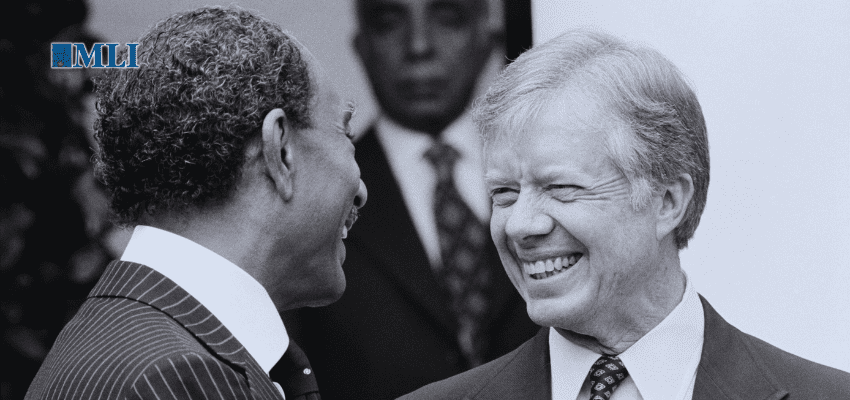This article originally appeared in the Globe and Mail.
By Jon Hartley, January 2, 2025
Former U.S. president Jimmy Carter died on Sunday at age 100. That makes the economic legacy of Mr. Carter’s decisions a timely matter to examine.
One issue that policy makers around the world should reflect on in these newly inflationary times is that America’s inflation fighting of the 1980s was set in motion by Mr. Carter in the form of deregulation and hawkish monetary policy – well before the Reagan Revolution, the phenomenon associated with Mr. Carter’s successor, to whom the credit is often given.
At the end of the 1970s, the U.S. economy was plagued by inflation and financial market volatility.
Several Federal Reserve chairs, including Arthur Burns, William Miller and Frederick Schultz (in an acting capacity), all had failed to tackle inflation head-on, with dire consequences: inflationary spirals that ravaged the financial well-being of Americans, especially those at or below the median income.
In late July, 1979, Mr. Carter nominated Paul Volcker, then the hawkish president of the Federal Reserve Bank of New York, to head the central bank. While sitting on the Federal Open Market Committee, Mr. Volcker had made it clear he was in favour of more aggressive interest rate increases.
He took action in fighting inflation with increases that past Fed chairs had been too afraid to introduce, eventually raising interest rates to a peak of 21.5 per cent in 1981. Despite contributing to a significant labour market pullback that included unemployment above 10 per cent, the hikes pushed inflation, which had peaked at 14.8 per cent in 1980, to fall below 3 per cent by 1983. The episode is still cited by economists and textbooks as one of the greatest empirical examples of how raising interest rates can reduce inflation by lowering aggregate demand.
In 1983, president Ronald Reagan reappointed Mr. Volcker to a second term, beginning a long tradition of reappointing Fed chairs (even across party lines) that would last 35 years and further enshrine central bank independence. President Carter’s initial decision had important long-term consequences.
The Carter-Volcker inflation-fighting legacy is a lesson that President Joe Biden, current Fed chair Jerome Powell and other Federal Reserve officials should remember as they continue their quest to vanquish the early 2020s inflation spike – after initially hesitating, in the mistaken belief that inflation would subside on its own, without central bank intervention.
Mr. Carter also played a substantial role in the deregulation of many industries in the United States in the late 20th century. In 1978, he signed the Airline Deregulation Act into law, which removed federal government control over the industry, paving the way for low-cost carriers such as Southwest Airlines.
Later that same year, he also signed into law the Energy Act, legislation that would deregulate oil and gas prices and later increase the supply of energy, lowering prices further. It also ended a period in which natural gas was blocked from entering interstate markets from producing states.
Deregulating many other industries would follow, even after the Carter administration. This practice has its critics, who say it erodes the rights of workers, but it has unquestionably resulted in further reducing prices and thus improving consumer welfare, especially for those below the median income, as inflation is historically higher for the poor.
While Mr. Reagan often gets the credit for deregulation and fighting inflation – he was in office during most of Mr. Volcker’s term at the Fed – some of the seeds of the Reagan Revolution were planted by a kind peanut farmer from Georgia named Jimmy Carter.
Jon Hartley is a senior fellow at the Foundation for Research on Equal Opportunity, a senior fellow at the Macdonald-Laurier Institute, and affiliated scholar at the Mercatus Center.







